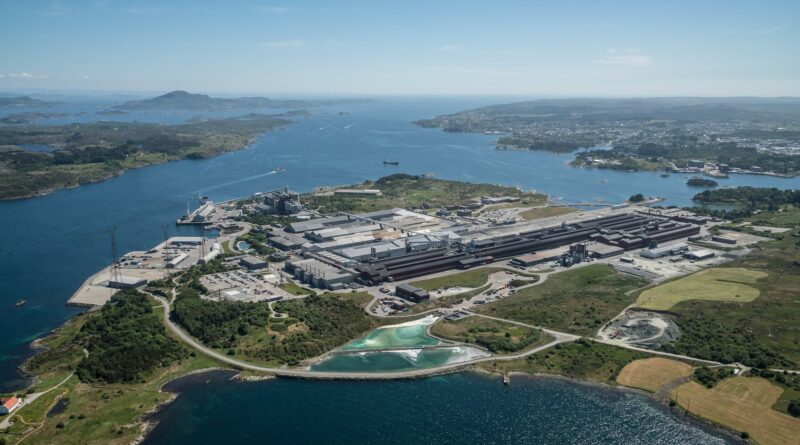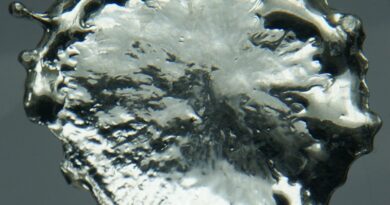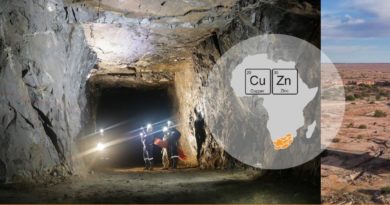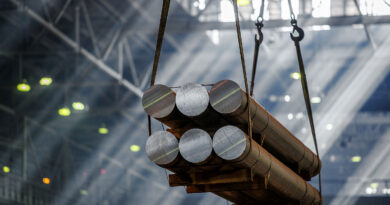Hydro’s Q3 2024: Strong upstream results, building downstream robustness
Hydro’s adjusted EBITDA for the third quarter of 2024 was NOK 7,367 million, up from NOK 3,899 million in the same quarter last year, positively impacted by higher aluminium and alumina prices, lower raw material costs and positive currency effects. This was partly offset by lower recycling margins, Extrusions volumes and Energy prices resulting in an adjusted RoaCE of 8.5 percent over the last twelve months and free cash flow of NOK 1.7 billion.
- Solid upstream results from increasing alumina and aluminium prices
- 2024 improvement programs on track, Extrusions building robustness in weaker core markets
- Energy executing on renewable ambitions with Illvatn pumped storage project
- Reducing ownership from 30 to 19.9 percent and impairing NOK 956 million investments in Vianode
- Hydro and Mercedes-Benz extend partnership to foster socioeconomic development in Brazilian Amazon
“The positive development in our upstream revenue drivers continued in the third quarter, supporting strong results in our upstream business, countering the overall effects of the challenging downstream market,” says Eivind Kallevik, President & CEO of Hydro.
Positive upstream revenue drivers continued into the third quarter, supporting record results in Bauxite & Alumina. The Platts Alumina Index (PAX) gradually increased to USD 562 per tonne by quarter’s end as global alumina supply tightened. Chinese alumina prices also rose due to bauxite sourcing constraints, keeping the market balanced. Alunorte continued the fuel switch project, producing alumina with natural gas during the third quarter, and is expected to be fully implemented by the end of this year. The three-month aluminium price rose from USD 2,515 to USD 2,612 per tonne during the third quarter, supporting solid results in Aluminium Metal.
“The fuel switch at Alunorte exemplifies sustainability and profitability going hand in hand, yielding significant savings in carbon intensity as well as costs. Combined with the higher alumina price driven by the tight alumina market, the investment impacts Bauxite & Alumina’s result positively this quarter,” says Kallevik.
The downstream aluminium market continued to be challenged by weak demand and recycling margins in Europe and North America. Automotive extrusion demand remains weak due to low electrical vehicle sales in Europe, especially in Germany. Building and construction, and industrial demand continues to be moderate with potential 2025 support from lower interest rates. Low activity in these markets limits aluminium scrap supply, squeezing recycling margins and reducing remelt production in both Hydro Extrusions and Metal Markets.
“Hydro is responding with short and long-term actions to strengthen robustness in Extrusions. While responding to the challenging market with firm mitigating actions, we are continuing to invest in the long-term robustness of our operations,” says Kallevik.
Hydro Extrusions is actively navigating challenging markets to address weak demand. By leveraging production flexibility and implementing cost-cutting programs, Extrusions aims to maintain margins. The recent investment in an automated press in Cressona in the U.S., replacing two old presses, exemplifies the commitment in Extrusions to enhance efficiency and productivity. However, achieving the NOK 8 billion EBITDA target for 2025 will require an extrusion market recovery of more than 20 percent volume growth and a recovery of remelt margins in line with historical averages, both in total representing NOK 2-3 billion improved EBITDA.
Weak markets are pressuring recycling margins, and active measures are taken to boost profitability and secure competitive scrap sourcing. Critical to this effort are enhanced capabilities in advanced scrap sorting. In the third quarter, the Alusort joint venture launched commercial operations of HySort in the U.S., enabling plants to process more post-consumer scrap. This expands Hydro’s HySort portfolio, to soon five machines in operation, including four across Europe, reinforcing the company’s leadership in recycling more post-consumer scrap.
By leveraging a fully integrated, traceable value chain from mine to component, Hydro is attracting strategic partnerships with industry frontrunners like Mercedes-Benz. The collaboration advanced significantly during the third quarter, as both companies committed to a long-term initiative aimed at driving positive change in the Brazilian Amazon. The Corridor program focuses on protecting human rights, generating income for local communities, restoring nature and building low-carbon value chains, underscoring that sustainability in aluminium solutions goes beyond just reducing carbon footprint.
Securing renewable power is key to growth in low-carbon aluminium. Hydro made an investment decision for the Illvatn pumped storage plant in Luster, Norway, aiming to generate 84 GWh of renewable energy annually and improving flexibility in its production system. This will strengthen Hydro Energy’s portfolio, powering industrial production in Norway.
On October 22, Hydro decided to reduce its ownership in the synthetic graphite producer Vianode, based in Norway, from 30 to 19.9 percent. Hydro will step down from the board and no longer provide capital to Vianode to focus on projects supporting Hydro’s strategic priorities towards 2030. Impairments of NOK 956 million of investments in Vianode are taken in the third quarter, with NOK 581 million impacting reported EBITDA and shareholder loan in Vianode of NOK 375 million is impacting Finance expense.




